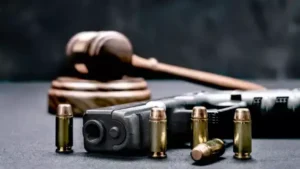Alternative sentences are punishments for crimes in place of imprisonment. In the past, retribution for crimes was typically a jail sentence or corporal punishment. Today’s judicial system is evolving to include more community courts and a stronger emphasis on rehabilitation. Community services are shifting away from punishment and toward rehabilitation in an effort to reduce criminal recidivism.
Criminal law allows criminal defendants who have been found guilty of a crime to make up for their transgressions in ways other than imprisonment. While some felonies call for a mandatory minimum prison term, other offenses, particularly misdemeanors, give judges the discretion to send defendants to community programs when it makes sense to do so.
What kinds of options are available for alternative sentences?
When it comes to punishment, Wyoming judges have a lot of alternatives. Some of them are popular, while others are far more uncommon or only available to a select group of eligible defendants.
Money fines are the most typical type of alternative sentencing. In fact, they are so prevalent that they hardly seem like a substitute. Two examples are tickets for speeding and parking. Fines are frequently added to the sentence rather than used as a substitute by judges in criminal proceedings.
A judge may impose a suspended sentence as an alternative to incarceration by choosing not to impose one or by deciding to impose one but not carrying it out. The type and seriousness of the crime, the defendant’s age, his or her criminal history, the impact of the crime on the victims, and the defendant’s level of contrition are often taken into consideration by judges when deciding whether to impose alternative penalties.
Both unconditional and conditional suspensions are possible. A sentence that is simply suspended unconditionally has no conditions. If the suspended sentence is conditional, the judge may defer imposing or carrying out the punishment as long as the offender complies with the suspension’s requirements.
Probation:
Probation is a different option than prison. A defendant is allowed to reenter society under the terms of probation, much like a sentence that has been suspended, but with less freedom than a regular citizen. For first-time or low-risk offenders, the court will often award probation. However, the sentencing judge has the last say on whether or not to actually issue probation. The statutes specify when probation is permissible.
The court has the authority to cancel or amend probation if the probationer violates any of the restrictions that come with it. When determining the terms of probation, courts have a considerable amount of latitude.
Restitution:
Restitution is payment from the defendant to the victim to make up for losses caused by the crime. Judges order restitution to compensate victims for financial losses caused by crimes, and holding perpetrators accountable. Victim compensation aims to fully restore their financial state prior to the crime.
Graffiti can cause financial damage to businesses, so alternative sentences like compensation and restoration aim to restore the affected parties’ financial state.
In some circumstances, a judge might order a criminal offender to do community service in exchange for a reduction in fines and/or jail time. Courts may offer community service instead of imprisonment, along with other punishments to promote accountability for misdeeds. Courts can offer alternatives to imprisonment, like community service. This promotes accountability, benefits the community, saves costs, and may offer valuable work experience for offenders.
Alternative Sentences: Pretrial Diversion/Deferred Adjudication
If a defendant complies with the program’s requirements and meets certain criteria, charges may be dropped against them. These programs, which are also referred to as “deferred adjudication” or “diversion,” remove the offender from the usual criminal justice system until a number of requirements have been met. Following that, either the prosecutor or the court dismisses the charges.
Diversion programs typically work for drug offenses or first-time offenders and aim to give a defendant time to show that they are capable of acting properly. Most of the time, the terms of the sentence include probation and/or some kind of counseling, and they call for the offender to behave themselves.
Alternative Sentences: What are the Elements?
The following elements raise a defendant’s chances of getting a different punishment:-
- If this is the defendant’s first crime,
- The crime was not committed violently;
- The offense involves drug possession or was brought on by alcohol or drug addiction;
- The community or the victim is not at risk because of the defendant;
- The defendant has a reliable job and connections to the community.
- The defendant has a support system to promote program completion; or
- The defendant has already started a treatment program, and he or she appears motivated to finish it.
Some FAQs about alternative sentences
The following are some FAQs concerning alternative sentences:-
How do I become eligible for alternative punishment?
Defendants must volunteer to participate in a diversion program or alternative punishment if they want to benefit from one. If the offender rejects therapy or a rehabilitation program, the judge is less inclined to impose it.
A social worker or another administrator of the desired program may conduct an intake evaluation to determine the defendant’s suitability as one of the additional elements. Many crimes, such as serious acts or conduct connected to drug trafficking, are simply ineligible for diversion or alternative punishment.
If I break the terms of my probation, what happens?
You will need to show up in court if you don’t follow the regulations of your probation. A hearing to revoke your probation can be scheduled for you. If the court determines that you violated your probation, you might have to spend some time in jail before your probation can be renewed. If the court decides to terminate your probation, he or she may impose any previously suspended punishment or the maximum sentence allowed by law.
Do I receive a sentence reduction while I’m on home arrest?
No. Probation and house arrest are alternatives to incarceration. When you are in any kind of home confinement, you cannot earn good behavior points. If you choose to spend your sentence in confinement at home with electronic monitoring after the judge convicts you to 120 days in jail, you must complete the entire 120 days. The judge will also decide whether you are responsible for the expenses associated with your imprisonment. The judge has the option to examine various criteria, including your financial capacity while making this determination.
Can I perform community service in lieu of making a payment or serving time in jail?
For most misdemeanor and some felony offenses, the judge has the discretion to order community service in lieu of a fine. Your eligibility for community service, however, will be based on your current charges and criminal background. Remember that enrolling in a county-approved community service volunteer program still requires payment of a fee. The time and commitment necessary to conduct community-based volunteer work will also necessitate that you make yourself available.
Related article:
MISDEMEANOR PROBATION: Rules and Guidelines
Felony Probation: Rules and Violation Penalties



